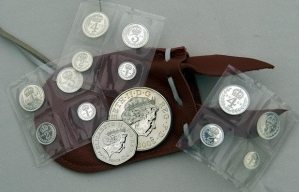Christians around the globe will be commemorating Maundy Thursday this year on March 24 in solemn, thoughtful ways with a focus on Jesus' major sacrifice for humans and his example of modesty during the Lord's Supper. Also known as "Holy Thursday" during Passion Week, it occurs one day before Good Friday, which annually is the Friday before Easter. Specifically, Maundy Thursday is the name given to the day on which Jesus celebrated the Passover with His disciples, known as the Last Supper.
The word Maundy is derived from the Latin word for "command." The "Maundy" in "Maundy Thursday" refers to the command Jesus gave to the disciples at the Last Supper, that they should love and serve one another.
The Bible neither commands or forbids observing Maundy Thursday.
Jesus celebrated the Last Supper with His disciples and thereby instituted the Lord's Supper, also called Communion (Luke 22:19-20). Some Christian churches observe a special Communion service on Maundy Thursday in Jesus' memory.
Second, Jesus washed the disciples' feet as an act of humbleness and service, thereby setting an example that we should love and serve one another in humility (John 13:3-17). Some Christian churches observe a foot-washing ceremony on Maundy Thursday to commemorate Jesus' washing the feet of the disciples (Philippians 2:1-11).
It is the fifth day of Holy Week. Although in England "Maundy Thursday" is the normal term, the term is rarely used in Ireland, Scotland or Canada.
Maundy Thursday is a public holiday in Colombia, Costa Rica, Denmark, Iceland, Mexico, Norway, Paraguay, the Philippines, Spain and Venezuela, and in Kerala State of India. Certain German states declare a public holiday for public sector employees.
Maundy Thursday celebrations in the United Kingdom (also called Royal Maundy) today involve the Monarch offering "alms" to deserving senior citizens, one man and one woman for each year of the sovereign's age. These coins, known as Maundy money or Royal Maundy, are distributed in red and white purses, and is a custom dating back to King Edward I.
The red purse contains regular currency and is given in place of food and clothing; the white purse has money in the amount of one penny for each year of the Sovereign's age. Since 1822, rather than ordinary money, the Sovereign gives out Maundy coins, which are specially minted 1, 2, 3 and 4 penny pieces, and are legal tender. The service at which this takes place rotates around English and Welsh churches, though in 2008 it took place for the first time in Northern Ireland at Armagh Cathedral. Until the death of King James II, the Monarch would also wash the feet of the selected poor people.








